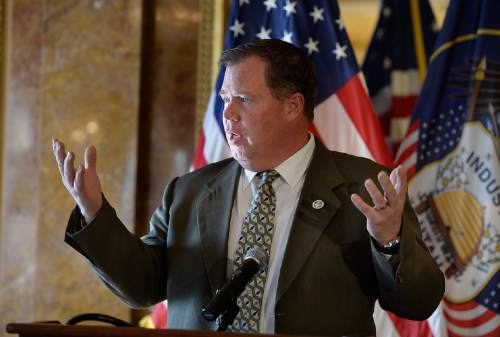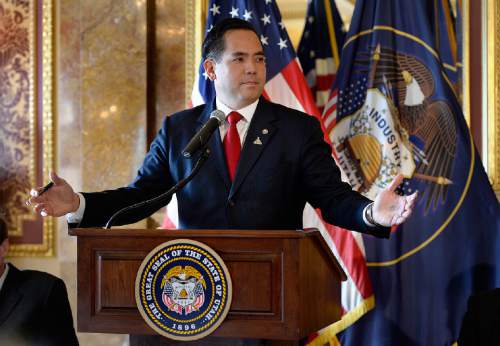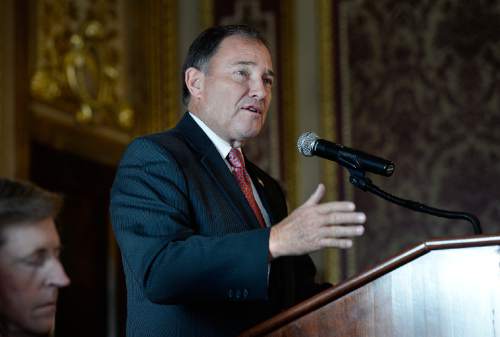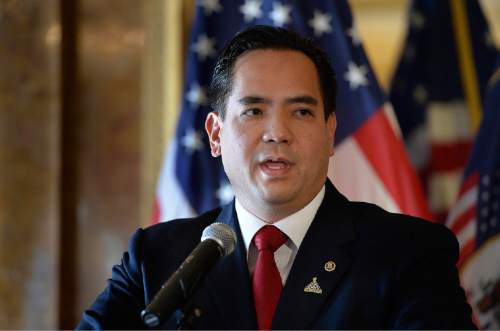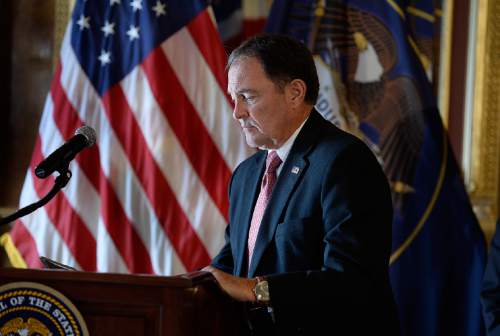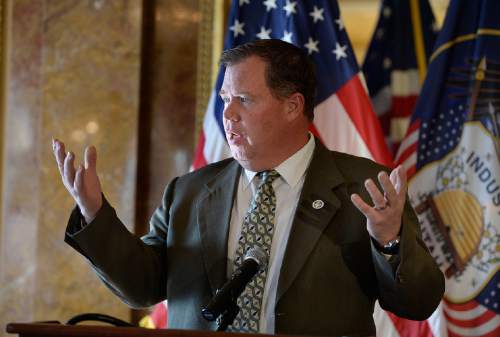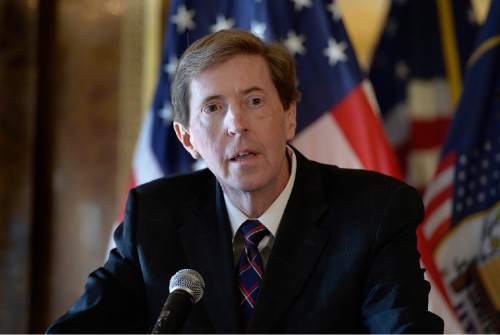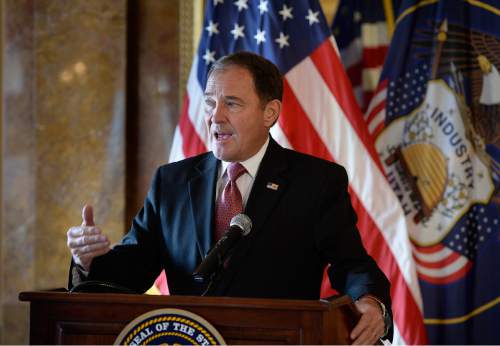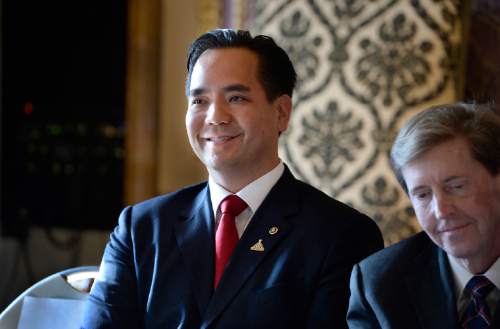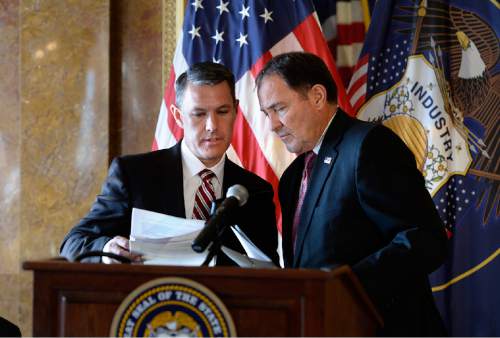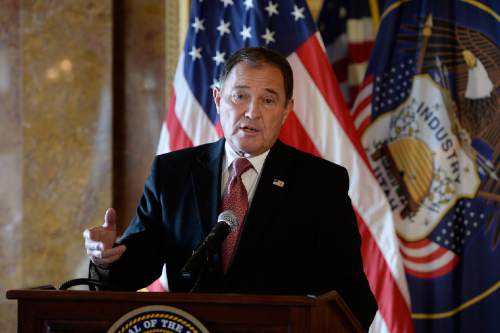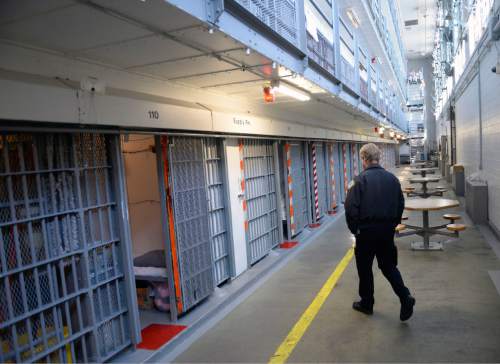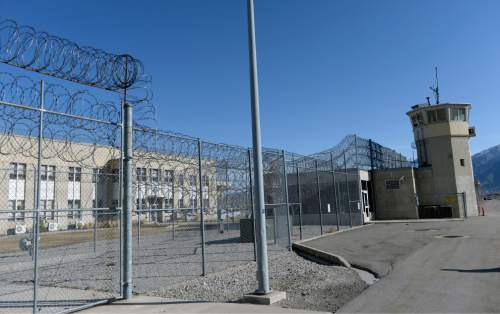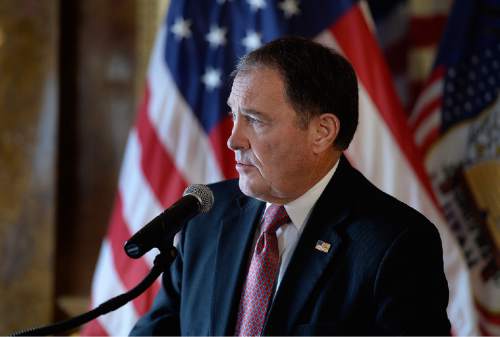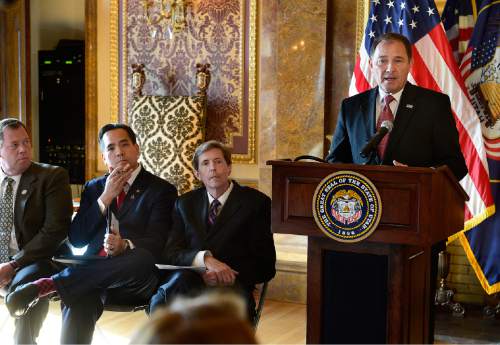This is an archived article that was published on sltrib.com in 2014, and information in the article may be outdated. It is provided only for personal research purposes and may not be reprinted.
For the last several years, the Utah State Prison has become a revolving door for some non-violent inmates: They enter, serve their time, leave the prison walls and end up incarcerated once again after re-offending or violating their parole.
Utah's Commission on Criminal and Juvenile Justice (CCJJ) is looking to change that.
The commission released its "Justice Reinvestment Report" Wednesday, which includes 18 recommendations that aim to lower the prison population and the cost passed on to Utah taxpayers.
"Our charge was not to just reduce the prison population," CCJJ executive director Ron Gordon said. "But to increase public safety and decrease recidivism."
Gordon delivered the report Wednesday to Gov. Gary Herbert during an afternoon press conference called by the governor.
Much of the report and proposed changes are centered around non-violent offenders, specifically drug offenders.
Among the recommendations to improve the criminal justice system in Utah is a proposal to reclassify what is now third-degree felony simple drug possession to a class A misdemeanor. The CCJJ also proposes reducing "commercial drug offenses" from second-degree felonies to a third-degree felonies.
But Herbert said Wednesday that he is not ready to endorse the report as a whole quite yet. He said he needed time to look over the recommendations, saying that the "devil's in the details." When asked specifically if he supported reducing a felony drug crime to a misdemeanor, the governor said he wasn't sure.
"I'm not ready yet to say yes or no," he said.
Other proposed changes include tweaking sentencing recommendations for lower-level crimes and establishing statewide standards for substance abuse, mental health and sex offender treatment programs. The CCJJ report also noted that a growing number of prisoners are sent back to prison due to "technical probation revocations" and suggested they instead be sent to jail.
The CCJJ's recommendations must now go to Utah lawmakers, who will decide whether to approve the changes during the January legislative session.
Officials say Utah's imprisonment rate is below the national average but growing faster than in other states.
According to the CCJJ, Utah's prison population has grown 18 percent since 2004 — six times faster than the national average.
Without changes, the number of inmates is estimated to grow 37 percent over the next two decades.
"We can't just warehouse people," Herbert said. "There needs to be rehabilitation, especially for non-violent offenders. There ought to be a better way to do this so we don't have a revolving door affect."
Herbert said if changes aren't made, it will cost Utah taxpayers an additional $500 million over the next two decades.
"That really ought to be the end goal," he said. "What can we do to take the taxpayer dollars and get a better outcome?"
Rep. Eric Hutchings, R-Kearns, who is a CCJJ member, said Wednesday that there is a "better, smarter way" to address non-violent criminals, but emphasized that they are looking to make the community safer, not make it easier for criminals to get out of prison.
"We are not in any way going soft on crime," Hutchings said. "We are going smart on crime."
Utah Supreme Court Chief Justice Matthew Durrant commended the CCJJ for tackling "very difficult, perplexing problems" in their report. He said that he is amazed at the prominent role that drugs and alcohol play in crime. He estimated that 80 percent of criminal cases have underlying drug or alcohol issues.
"We all want, first and foremost, a criminal justice system that provides justice and is fair," Durrant said at the press conference. "But beyond that, we want it to be smart. We want it to hold those who engage in criminal conduct accountable, but at the same time, providing them with resources they need to successfully enter society. Once they re-enter, we want them to stay re-entered."
Utah Attorney General Sean Reyes emphasized Wednesday that this report is a "tremendous beginning," but only a beginning. He said he believes changes are needed in the prison system.
"They're necessary for rehabilitation," he said. "For restoration. For redemption."
Twitter: @jm_miller


